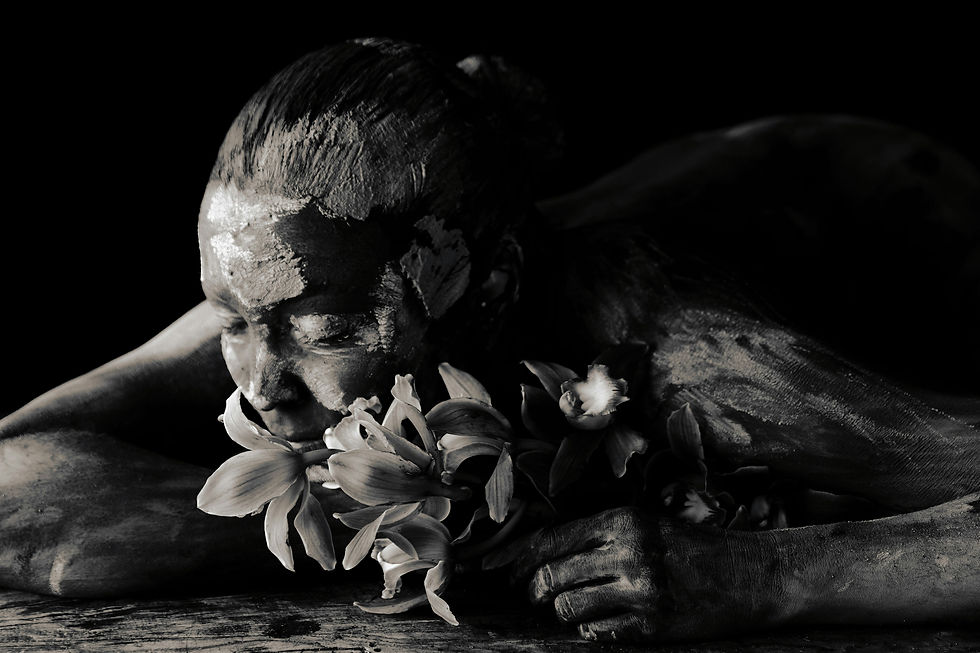The Ethics of Hope
- sancharim946

- Aug 30, 2025
- 6 min read
Hope is one of those elusive human experiences that resists definition yet saturates our language, literature, and lives. We speak of it in metaphors—“a light at the end of the tunnel,” “a flame that refuses to die,” “the thing with feathers that perches in the soul,” as Emily Dickinson so memorably phrased it. At once fragile and stubborn, hope animates revolutions, sustains the sick, consoles the grieving, and inspires the artist. Yet philosophers and skeptics have often asked a harder question: is hope truly an ethical force of empowerment, or does it disguise itself as denial, a narcotic against the harshness of reality?

At the core of human existence is the conflict between hope as an illusion and hope as an ethical virtue. In order to unravel it, we need to travel through philosophy and everyday life, where hope may be both a savior and a seducer.
Hope as Empowerment
At its most radiant, hope is the pulse of resilience. When Hannah Arendt, writing in the shadow of totalitarian violence, declared that every ending bears “the seeds of a new beginning,” she was appealing to hope not as idle optimism but as the condition for ethical action. Resignation is resisted by hope. It hints that the past is not over and that hopelessness is not fate.
Consider the freedom struggles across the world- India’s fight for independence, the Civil Rights Movement in the United States, or the dismantling of apartheid in South Africa. Each was carried on the shoulders of people who had little empirical reason to believe that their sacrifices would succeed. What sustained them was not certainty but hope—an ethical commitment to imagine a world otherwise and act as though it might be possible. In these situations, hope is more about refusing to be constrained by the harshness of reality than it is about rejecting it.

Hope can also be a silent source of courage in our lives. Hope becomes a lifeline for the sick waiting for surgery, the migrant navigating uncertainty, or the student struggling with self-doubt. When reason dictates surrender, it encourages perseverance. Even when there doesn't seem to be much proof, it persists that change is possible. In many situations, giving up hope would mean giving up life altogether.
The Shadow of Denial
And yet, hope can be treacherous. Since hope ties us to the future and exposes us to disappointment, the Stoics, the ancient soul doctors, cautioned against it. According to Epictetus, the key to freedom is wanting nothing that is beyond of one's control. On the other hand, hope frequently binds us to uncontrollable results and tempts us to anticipate the unknowable.
Further, contemporary philosophers such as Nietzsche referred to hope as "the worst of all evils, because it prolongs the torment of man." His remarks are reminiscent of the story of Pandora, in which hope was the final item in the jar of evils. It was a trap that kept people yearning rather than facing reality, but it was also a source of solace. According to this perspective, optimism turns into a delightful anesthetic that lessens life's suffering without addressing its root cause.

This darker side of optimism can be seen in politics, when people are placated by unfulfilled promises, or in personal relationships, where people cling to a spouse long after attachment has faded. Hope, then, can delay necessary reckoning. It can keep us loyal to illusions, comforting us with visions of change while ensuring that we remain passive in the face of present injustice.
Psychologists warn that unrealistic optimism might impede acceptance, even in the medical field. In the name of "staying hopeful," a patient may forfeit the opportunity to make significant preparations for death if they refuse to accept a fatal prognosis. Here, hope gives way to denial, or the inability to recognize reality.
The Ethical Dilemma
The moral conundrum of when hope is good and when it is bad thus arises. Can escapist denial be distinguished from empowering hope?
Philosophers like Ernst Bloch made an effort to restore optimism by highlighting its significance in human ingenuity. According to Bloch, hope is a forward-thinking mindset that enables us to envision utopias and work toward them rather than naive confidence in miracles. In this way, ethical hope strives to overcome reality rather than ignore it, refusing to allow the present to limit the potential of the future.
However, modern ethicists such as Gabriel Marcel remind us that hope devoid of humility might turn into conceit. To hope is to understand that the future is unpredictable, to recognize one's limitations, and to have faith in its transparency. When optimism turns into certainty—when we hold onto particular results and ignore other options—denial sets in.
Therefore, the ethics of hope are not about whether we hope but about how we hope. Hope needs to be grounded in action, restrained by realism, and maintained by an openness to unexpected events. Hope that keeps us stuck in our fantasies is morally void; hope that encourages us to take responsibility is morally rich.

Hope in Everyday Life
Hope permeates every aspect of daily life and is not limited to political manifestos or philosophical writings. Consider the parent who puts in a lot of work so that their child may have a brighter future. Or the farmer who sows seeds knowing that a flood or drought could ruin months of work, yet nevertheless has faith in the land every season. Or the learner who stays up late studying, unsure of the outcome but convinced that hard work is never in vain.
Hope's ethical weight is revealed in these everyday actions. It sustains routines that would otherwise collapse under the weight of uncertainty. It gives direction where none is guaranteed. Unlike denial, which averts its gaze from reality, these forms of hope walk hand in hand with risk. The parent knows the future is precarious, the farmer knows crops can fail, the student knows failure is possible—yet they proceed. That is not denial, but courage.
At the same time, everyday life also warns us of hope’s dangers. A gambler clinging to the next round, convinced luck will turn. When nothing changes, a worker continues to work in an exploitative job in the hopes that conditions will improve. a culture that rejects group responsibility and waits on leaders to solve issues. In these situations, hope masks inertia as patience and dulls urgency. Here, hope is an ethical suspension rather than an ethical action that delays the painful decisions that need to be taken.
Thus, hope displays both its powerful power and its dangerous tendency for denial through our everyday actions, which are deep yet banal.
The Fragility and Necessity of Hope
So, is hope empowering or denial? The answer, perhaps frustratingly, is both. It depends on whether hope aligns with action or merely replaces it. It depends on whether hope acknowledges reality or evades it.
To live entirely without hope would be to collapse into despair, for despair is hope’s absence, a condition in which the future closes down and meaning shrivels. However, it is as risky to live only in hope since we run the risk of losing ourselves in delusions and never waking up.

Therefore, leading an ethical life requires striking a careful balance: having a strong but not blind hope. can allow optimism to drive our actions without causing us to lose sight of reality. to stay aware of what is while daydreaming about what might be.
Closing Reflection
In the end, hope is less a destination than a discipline. It is not about expecting miracles, but about sustaining the courage to act when miracles seem unlikely. It is not denial of suffering, but resistance against its finality.
The ethics of hope asks us to carry both lucidity and longing: to face the world in its starkness and yet insist that another world is possible. Like a flame, hope can burn or illuminate; it can consume in denial or light the path of empowerment. Our task, perhaps the most human of all tasks, is to tend this flame wisely—neither extinguishing it nor letting it run wild, but allowing it to guide us toward futures worthy of our longing.
About the Author
I am Sanchari Mukherjee, a student doing Masters in English from the reputed Presidency University, Calcutta. I love writing and appreciate art in all forms. Being a literature major, I have learnt to critically comment on things of various kinds. I take a deep interest in deconstructing the various essential structures and revealing the mechanisms of their working. Really glad that you came across my blog, hope you found it covering some critical insights essential for progress!




Comments